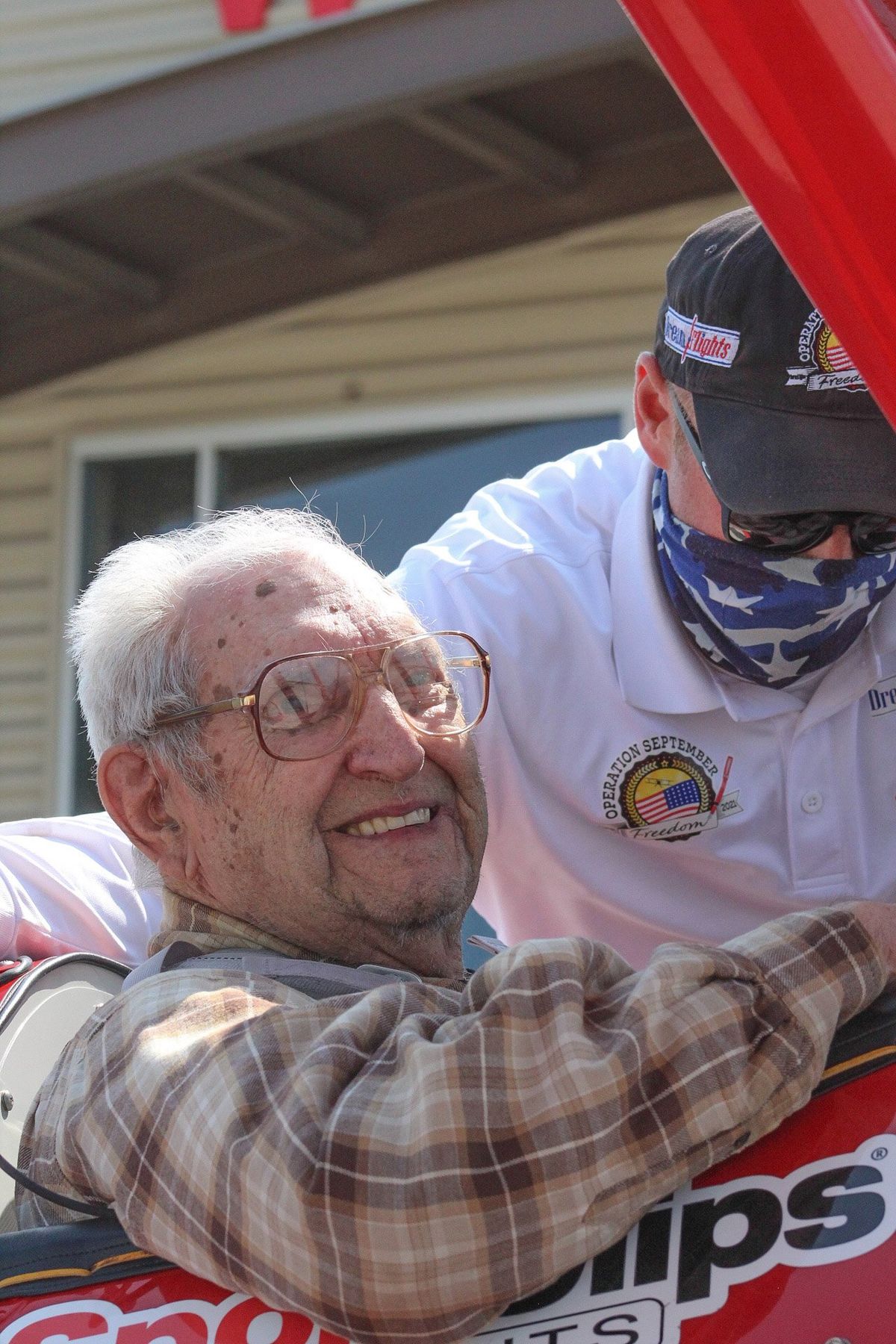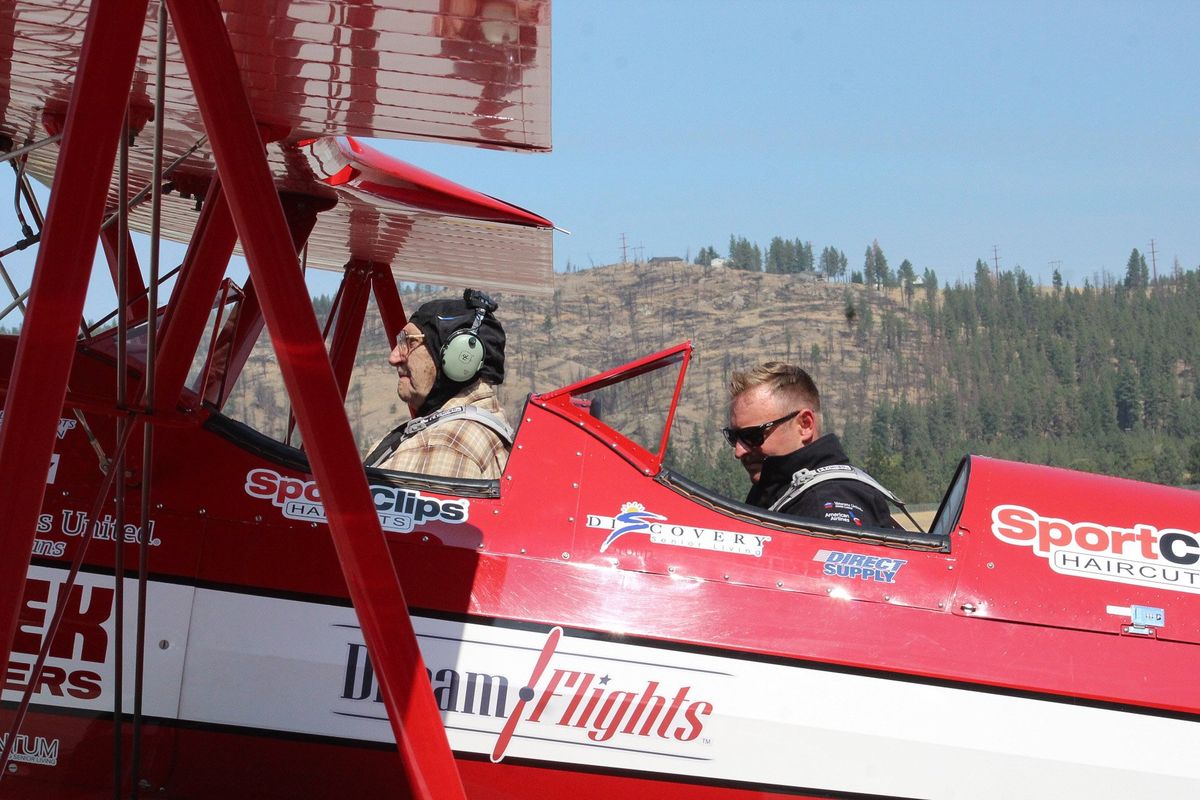The SS Cape San Juan was torpedoed 78 years ago today. A Spokane great-grandfather was there

Editor’s note: This Veterans Day story about Leonard Paulsen was written by his great-grandson Jordan Tolley-Turner, a student at Shadle Park High School and intern for The Spokesman-Review.
It was just another Thursday aboard the SS Cape San Juan’s sophomore voyage – a blacked-out, unaccompanied zig-zag toward Townsville, Australia, from San Francisco. The mission was to transport U.S. troops across 7,000 miles of Pacific Ocean during the thick of World War II.
Leonard Paulsen, on board as a quartermaster and as one of 42 Navy Armed Guards, was among more than 1,300 men on the ship. He was on the bridge that morning of Nov. 11, 1943, an 18-year-old from Washington experiencing the warmest November of his life.
Around 5:30 a.m., a torpedo fired by a Japanese submarine struck the ship. It was 300 miles southeast of Fiji in the South Pacific.
The torpedo hit the starboard side of the bow adjacent to the No. 2 hold.
“I was up in the wheelhouse, just about in the middle of the ship,” Paulsen said in a 2019 interview with the Omak-Okanogan County Chronicle.
The initial torpedo would kill 16 men in the 855th Engineers (Aviation) Battalion.
The armed guards returned fire in the area the submarine was believed to have been. But within a half- hour, the captain gave the order to abandon ship.
“We didn’t go into the water immediately,” Paulsen said.
“As he was a member of the Armed Guard, it makes sense they didn’t abandon ship immediately,” Eric Stone, historian and coordinator of the SS Arkansan website said. “They stayed to protect the ship as best they could until all the passengers evacuated. They and the captain would have been the last to evacuate.”
Paulsen doesn’t remember many specific details, but he, along with many others, ended up in 15-foot seas in their life vests as oil leaked from the ship. Whitecaps whipped at the overcrowded life boats, and sharks began to swarm the scene.
“Sharks were real bad,” Paulsen recalled.
In the aftermath of the attack, about 115 men would die.
Paulsen ended up in a life boat. The Liberty Ship Edwin T. Meredith, as well as the Pan American Martin PBM-3R Mariner flying boat, arrived to rescue as many survivors as possible. Later that night, the destroyer USS McCalla-DD-488, the minesweeper YMS-241 and the submarine chaser SC-654 also arrived.
Paulsen was picked up by a ship that evening, although he does not recall the name of the ship or where he was taken.
Stone believes he was likely picked up by the Edwin T. Meredith, as that would align with Paulsen’s memory and position. Paulsen recalls shooting at the Cape San Juan to hasten the sinking, which is what the Armed Guards did once aboard the Edwin T. Meredith as they manned the ship’s guns.
From there, he would’ve been taken to Noumea, New Caledonia.
After debriefings, he returned to Spokane for a month and a half before returning to war duty with the Navy.
Paulsen also recalled fighting in the Battle of Okinawa, including another close call.
“They were looking for gunners. I thought, ‘Well, that might be kind of fun,’” Paulsen said. “I signed up and missed the plane for some reason – and they didn’t come back.”
Paulsen was born in Oroville, Washington, on May 28, 1925, and raised in Omak, Washington.
He worked as a farmer until joining the U.S. Navy. Many times he has recalled his backbreaking youth.
“It was with horses back then, no tractors. I had never seen a tractor until I came out of the Navy. … We had three horses, work team and my saddle horse. Oh, and a bicycle!” Paulsen said. “I’d get up and go to church on Sunday just to get away from work. Farming is seven days a week!”
He walked the proverbial 2 miles in weather of all sorts to attend Omak High School, where he recalled the U.S. military recruiting young men to fight against Germany and Japan. So Paulsen joined the Navy at age 17.
“I come over to Spokane by bus from Omak, then where the clock tower is downtown is where I caught the train to go to California,” Paulsen said in another window to the past.
During his service, Paulsen went on to see many parts of the world he knows he wouldn’t have seen otherwise as a young farm kid from Omak, including Auckland, New Zealand; Sydney and Brisbane, Australia; Hawaii, Japan and Papua New Guinea.
“New Guinea had a lot of headhunters,” Paulsen recalled. “You didn’t go to shore without a gun, and you sure didn’t go alone.”
He earned three medals for his Navy service; the American Area Campaign Medal, the World War II Victory Medal and the Asiatic Pacific Area Campaign .
“The (Asiatic Pacific Area Campaign medal) is for the fighting we were in; getting torpedoed and afterwards in Okinawa,” Paulsen said during his Omak-Okanogan County Chronicle interview.
Afterwards, Paulsen spent 32 years driving semitrucks and then eight years driving charter buses, even this line of work bringing danger as multiple times winter blizzards left him stranded on mountain passes.
He has also survived five bouts with cancer.
Paulsen has spent most of his downtime traveling the United States and Canada with his family, as well as being an avid fisherman, hunter and woodworker.
Nowadays, Paulsen spends his time doing some well-deserved relaxing, watching television, crocheting and petting his cat, Annie, in Spokane. He lives with his daughter Cheryl Gagne after residing in Tonasket for nearly 30 years. He also enjoys bingo and a mixed drink or two at the Veterans of Foreign Wars (VFW) Post 1474 in Hillyard.
In his later years, Paulsen found ways to keep life interesting. Among them were getting his diploma from Omak High School at 84 years old and later taking an Honor Flight to Washington, D.C., when he was 86.
Most recently, Paulsen climbed into a Boeing Stearman biplane in August and took a ride with pilots from “Dream Flights,” an organization dedicated to honoring military veterans and seniors.

My great-grandfather has lived an eventful life. Our interview gave him a chance to recall experiences events I had never heard about and to learn from him the importance and beauty of a full life.
Reach the writer at jordant@spokesman.com or (509) 459-XXXX.